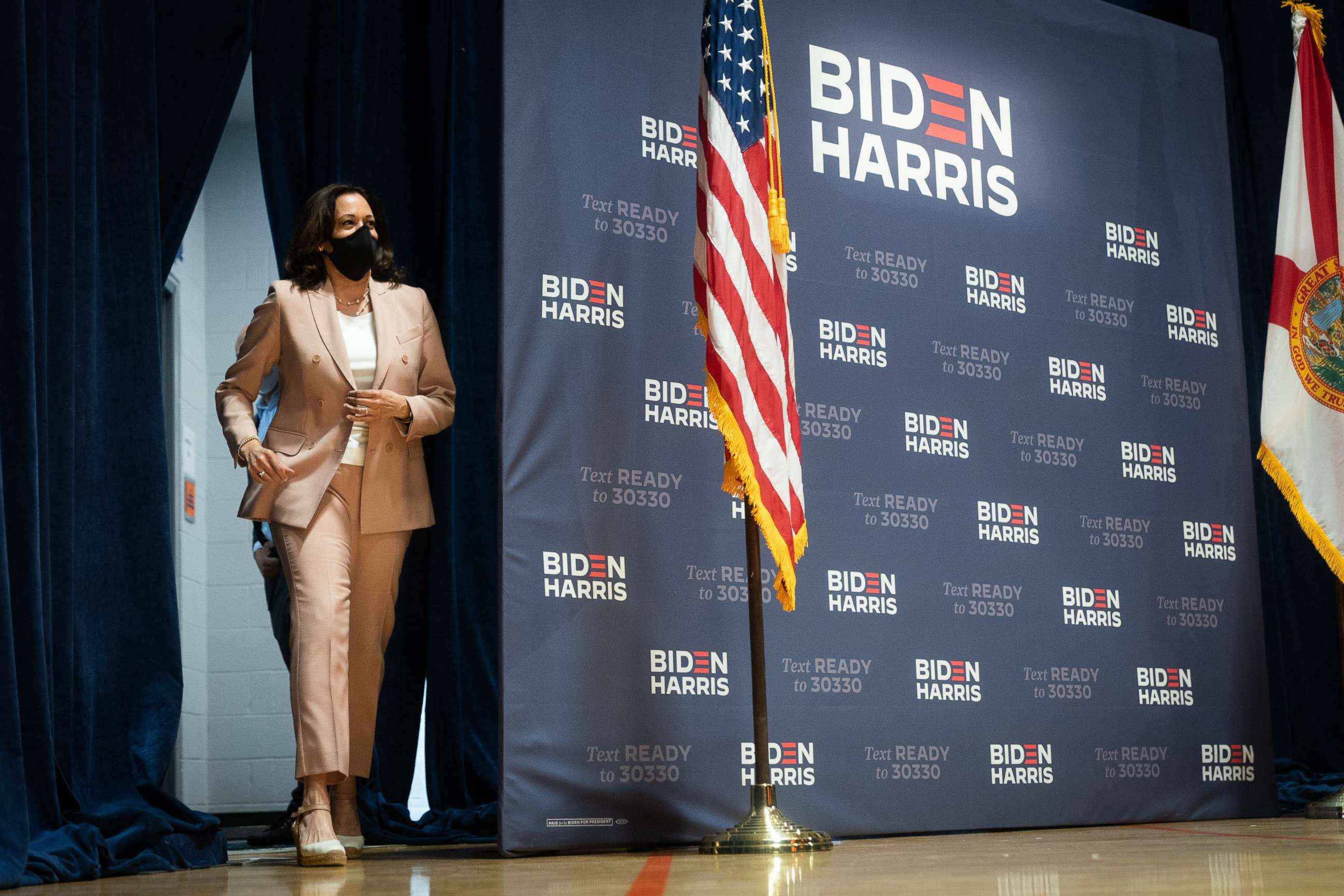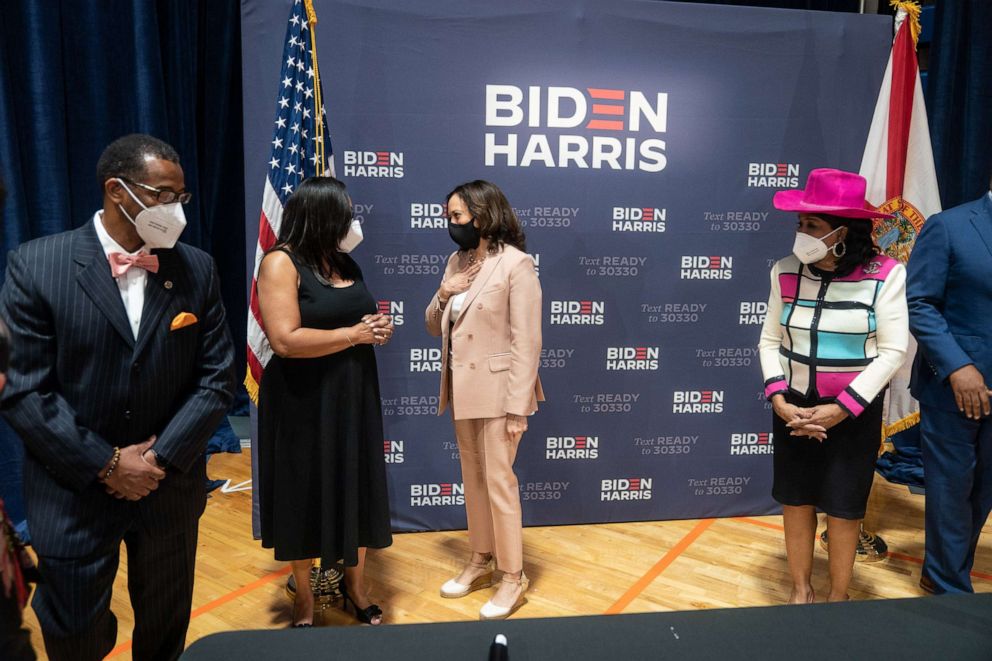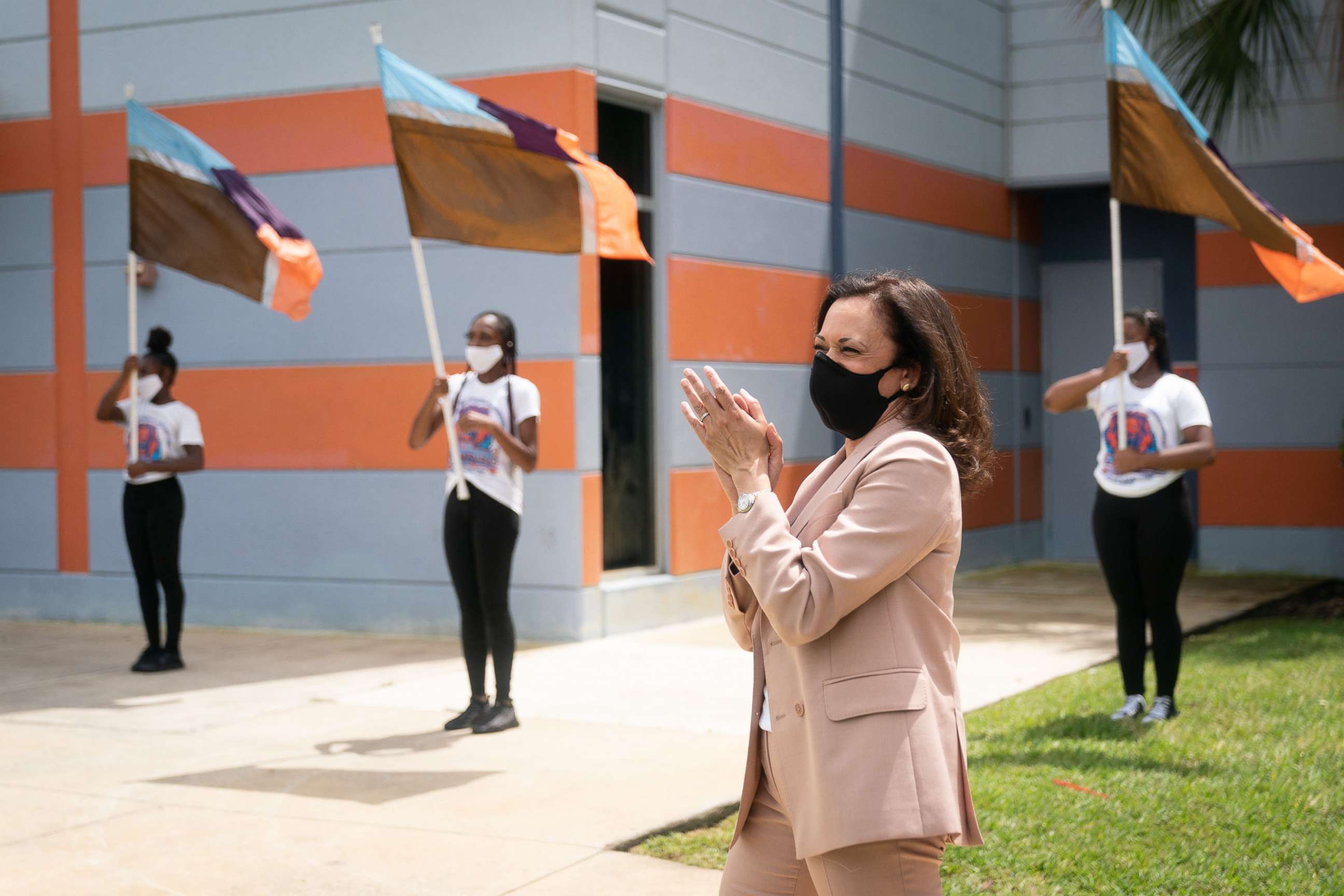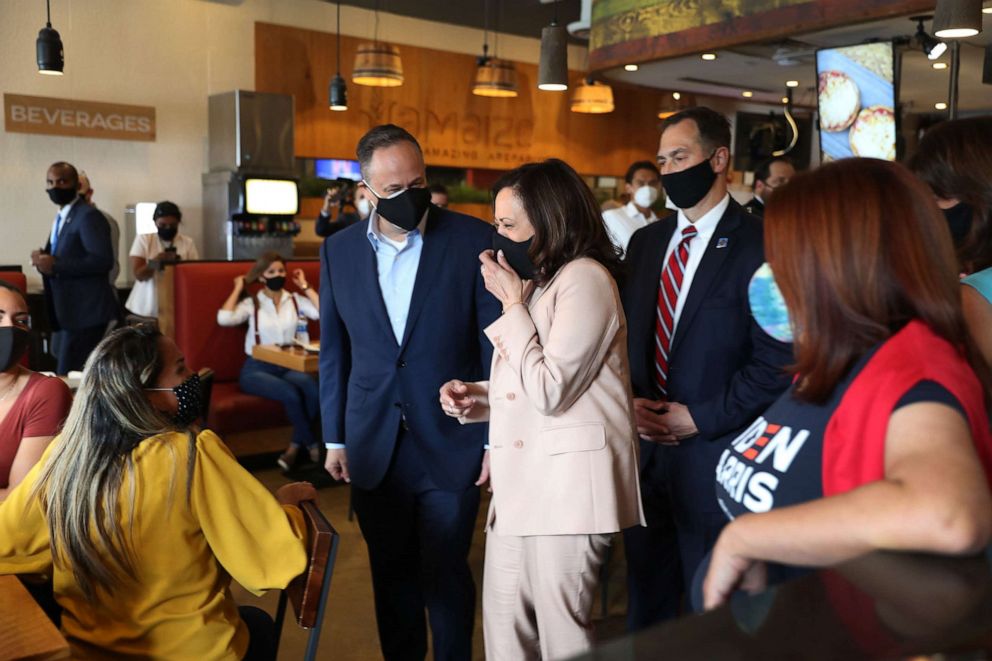Kamala Harris' connection to Caribbean voters could make difference in Florida
Playing up her Jamaican heritage is huge part of the Biden campaign’s outreach.
When Sen. Kamala Harris, D-Calif., took part in an interview on a South Florida radio show called "Caribbean Riddims," she sprinkled the Jamaican phrase "ya mon" throughout the interview with a heavy hand.
She told the host Marlon Hill her favorite Jamaican meal was "oxtail stew," a staple in many Caribbean households and claimed that scotch bonnet peppers, which give much of Jamaican food its spice, was the most important ingredient in her kitchen.
The Democratic vice presidential nominee is the daughter of Jamaican and Indian immigrants and playing up her Jamaican heritage is a huge part of the Biden-Harris campaign's outreach to Afro-Caribbean voters in the Sunshine State.

"There's such enthusiasm, there's such love and passion for her and such pride that it just is an easy way to just kind of invigorate the base, give them something to look forward to," Karen Andre, senior adviser to the Biden-Harris campaign in Florida, told ABC News. "So it's absolutely essential."
The voting bloc is significant in Florida, especially in South Florida and along the critical I-4 corridor, a bellwether in this battleground state. According to the Migration Policy Institute, 41% of the nation's 4.4 million Caribbean immigrants live in Florida, and Miami-Dade County has the highest number of Caribbean immigrants in the U.S. with 862,000 Caribbean immigrants calling it home. If the campaign's outreach to this community is successful, it could help turn the state into an electoral victory for Biden and Harris.
In 2016, the Trump campaign attempted to make inroads in the Haitian community. Then-candidate Donald Trump visited Miami's Little Haiti and promised to hold Hillary Clinton accountable for what he described as her failures to help the island nation in the aftermath of the deadly 2010 earthquake. According to a University of Florida study, Trump garnered the votes of nearly 20% Haitian-Americans in select Palm Beach and Broward County precincts.

One Biden-Harris campaign official told ABC News that they don't believe this ticket will experience the same outcomes as Clinton but said the campaign is working to ensure that Caribbean voters feel reached in an "authentic way."
"I do not have the same fears (as in 2016), but I am very vigilant of it," the official said.
"The numbers -- especially within the Black community -- is being driven by persons from Jamaica, persons from Haiti, persons from Trinidad and Tobago and other countries. That's driving the increase in the population in the state of Florida," said Hill, a political operative, who hails from Jamaica.
Harris has visited the state twice with stops in Miami, Orlando and Jacksonville. Karine Jean-Pierre, senior adviser to the campaign and Harris' chief of staff, is of Haitian descent and has also taken part in the campaign's outreach efforts in the state. Former Vice President Joe Biden also visited Little Haiti.

Andre, who is Haitian American, said the campaign is focusing much of its outreach on Haitian Americans, who represent the largest segment of the community. They've invested in Caribbean radio and print ads and the campaign has designated five paid staffers devoted to Caribbean outreach in both English and Haitian Creole-speaking communities.
The campaign has invested in having its plan for Black America, dubbed the "Lift Every Voice Plan," and other campaign materials translated to Creole. The campaign has also worked to translate phone and text-banking scripts into the language.
"The Haitian community is part of Black America and they should hear it in a language that they can digest it more easily," said Andre.
The Biden-Harris team in Florida is reaching out to the community on issues including immigration, health care and education. Additionally, the campaign in Florida has made efforts to describe how a Biden-Harris administration would interact with CARICOM, the political organization representing 15 Caribbean nations.
"We care about a pathway to citizenship. We care about being treated fairly whenever there is an emergency or some sort of traumatic event overseas like it was in Haiti. We want to be afforded the same policy protections like other countries," said Hill of issues of particular interest to Caribbean voters.
One campaign official referred to reaching Caribbean communities via Harris' heritage "low-hanging fruit," but some wonder if these blatant displays, including a social media video of Harris speaking with a Jamaican accent could leave the campaign vulnerable to accusations of pandering.
"The question is, to what degree did you promote your heritage before you ran for office?" said Sharon Wright Austin, a political science professor at the University of Florida and the author of "The Caribbeanization of Black Politics: Race, Group Consciousness, and Political Participation in America."

Harris' parents split when she and her sister Maya were young. Harris' niece Meena described her grandfather as "not being around" after the divorce.
"Their experience and relationship with blackness is through being raised in these communities in Berkeley and Oakland, and not through the lens of being Caribbean," Meena Harris told The New Yorker, describing Sen. Harris and her sister Maya's California upbringing.
"You could easily say that critics would accuse her of pandering, but as a politician, I think she's doing what she thinks she needs to do to win," added Wright Austin.
Others, like Hill, see her outward displays of her multifaceted heritage as a plus.
"When you can hear an accent, even if you can't speak it, means that you have exposure or an awareness of someone's experience, and when she brings that into the room, she will be able to understand those different layers of who we are as Americans," said Hill. "Being a hyphenated American hybrid is something that she is bringing into the room and she's bringing all her hyphens."




